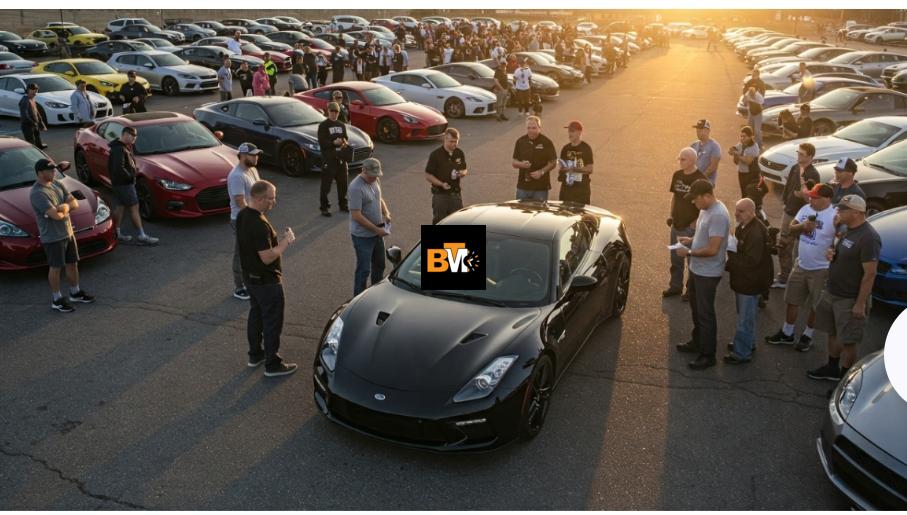The automotive industry has witnessed significant shifts in recent years, particularly in the way vehicles are bought and sold. Car auctions, once dominated by in-person bidding at physical locations, have largely transitioned into digital marketplaces. This evolution has made vehicle purchasing more accessible, offering buyers a broader selection and competitive pricing. From salvage cars to classic collectibles, the auction industry caters to a wide range of buyers, including dealerships, collectors, and private individuals.
The Rise of Online Car Auctions
The shift toward digital car auctions has been driven by convenience, transparency, and an increasing number of buyers looking for affordable vehicles. Online platforms now enable customers to bid on cars from anywhere in the world, eliminating the need for in-person attendance. One particular segment gaining traction is the market for Online Car Auctions – Repairable Salvage Cars. These vehicles, often sold at a fraction of their retail value, attract budget-conscious buyers, mechanics, and businesses looking for restoration opportunities. Salvage car auctions offer a viable alternative for those willing to invest time and effort into repairs, often resulting in significant cost savings compared to traditional dealership purchases.

Key Trends Shaping the Vehicle Auction Industry
The automotive auction market is constantly shifting, influenced by economic trends, consumer behavior, and technological advancements. Some of the most important trends are as follows:
1. Increased Demand for Salvage and Used Vehicles
The rising cost of new vehicles has caused a vast majority of consumers to flock to the used and salvaged car market. Inflation, chip shortages, and supply chain disruptions have all contributed to historic prices on new vehicles. As a result, used cars, including salvaged vehicles sold in auction, have never been more attractive. Buyers looking to get deals on vehicles they can repair and flip are flocking to these sales, bidding prices higher as they fight over them.
2. Online Platform Expansion and AI Integration
Technology is continuously revolutionizing the auction process. Online car auction sites are more and more embracing artificial intelligence (AI) to improve vehicle appraisals, predict pricing, and automate bidding. AI-driven inspections, combined with high-definition photography and vehicle reports, provide bidders with more confidence in their purchases. The purchasing process is more transparent and streamlined by the digital revolution.
3. Electric Vehicle (EV) Auction Growth
As the automotive industry moves towards electrification, car auctions have not been left out. The used electric vehicle market is expanding, and more and more EVs are appearing in auction as a result of lease returns, fleet retirements, and manufacturer buybacks. Battery degradation and replacement expense are still key concerns that affect buyers’ decisions. However, as technology improves, their numbers in auction marketplaces will keep rising.
4. Classic and Collector Vehicle Auctions Becoming More Popular
Although most auction sales come from used and salvaged vehicles, sales of classics and collectors’ vehicles have also risen. High-profile sales, including Barrett-Jackson and Mecum Auctions, have buyers paying top dollar for rare and vintage vehicles. The appreciation in the values of certain classics has made them an investment opportunity for collectors. Online marketplaces have also made it easier for buyers and sellers to connect, again fueling demand for historic and one-off vehicles.
Understanding the Advantages and Disadvantages of Auto Auctions
Car auctions pose both promise and pitfalls to buyers. By understanding these factors, bidders can make informed decisions.
Advantages
Cost Savings: Vehicles auctioned, especially repossessed and salvaged vehicles, are priced significantly lower compared to their retail prices.
Range of Vehicles: Customers have an incredibly large variety to choose from, ranging from project vehicles to luxury vehicles.
Transparency in Listings: Online marketplaces currently give users thorough history reports, pictures, and condition reports, which makes it more transparent than it used to be.
Risk:
Hidden Repair Costs: Salvage cars can harbor unseen issues not evident in their listings. Thorough inspection is required before purchase.
Title Issues: Some vehicles have branded titles, such as salvage or rebuilt, which may affect insurance and resale.
Bidding Wars: Bidding drives prices higher, and first-time bidders may overpay for a vehicle without properly assessing the vehicle’s condition.
Tips to Bid on Online Car Auctions
If you are considering buying a car from an internet car auction, these best practices will guide you to a successful purchase:
Do Your Research: Always read the vehicle’s history report and examine all available photographs before bidding.
Determine a Budget: Establish the maximum amount you are comfortable paying, including any repair costs. Be aware of auction fees: Look out for additional fees such as buyer’s premiums, delivery fees, and title fees.
Inspect Before Buying: If possible, personally visit the auction site or have someone else inspect the vehicle to verify the condition of the car.
Start with Lower Bids: Avoid getting caught up in bidding wars by setting a limit and sticking to it.
Conclusion
The world of car auctions is in a state of constant evolution, offering buyers more methods to find vehicles at discounted prices. With more online bidding and the development of AI-driven insights, purchasing vehicles online is more convenient than it’s ever been. From a repairable salvaged vehicle to a used vehicle or a collector item, there is an alternative to dealership prices. However, as with any investment, research and due diligence are key to a successful purchase. With consumer tastes and technology constantly shifting, the car auction industry is offering a rosy outlook to buyers and sellers.







Leave a Reply